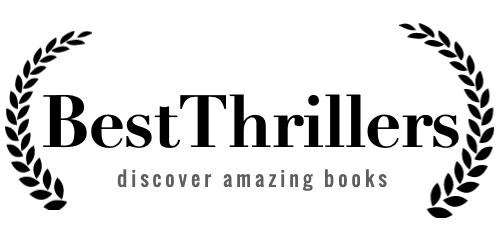What can book sales data tell us about where and how to publish your book? Plenty, as a new study indicates.
With technology making it easier than ever to become your own publisher, authors have lots of choices, ranging from going it alone, joining a small publishing house, or submitting their work through the traditional agent and publishing house system.

We’ll get to what the data says you should do in a moment, but first, can we be honest about something that is often underemphasized? While self-publishing is easier than it has ever been, it is still an incredible amount of work, requiring a wide range of skills rarely found in a single person. Publishing houses still exist because they have talented people doing an endless array of complex tasks ranging from editing to distribution to proofreading and typesetting. All those things require tons of labor and take time away from something writers have very little of: time.
And before we get to the data, let’s also acknowledge that publishing houses are generally good for readers, too, because they serve as a filter, ensuring that the books that make it to market are of reasonably high quality.
With that said, a new Author Earnings study indicates that there’s one thing the Big Five publishing houses (Hachette Book Group, HarperCollins, Penguin Random House, Macmillan and Simon and Schuster) might not do as well as the indies, and it’s kind of a shocker: selling books!
According to Author Earnings, out of more than 10,000 Big Five author debuts in the last five years, fewer than 220 were currently earning $50K/year or more from their book sales on Amazon (includes eBook, paperback, hardcover and audiobook sales). By contrast, more than 800 indie authors were measured to be earning more than $50k per year.
And what about authors earning more than $100k per year? Author Earnings found 115 Big Five authors, versus 425 indie authors.
Before you get my take, a few qualifiers: the study analyzed ~1 million book titles for sale on Amazon.com, noting that Amazon makes up more than 50% of the traditionally published book sales market). The study also noted that among authors with careers debuting more than 10 years ago (e.g. Stephen King), Big Five books dominate. No surprise there, since very few books were self-published in previous decades.
But if you’re a writer who was rejected by the traditional Big Five publishing system and chose to go indie, this study should make you feel a bit better about your path, even if it wasn’t the one you wanted.
Given that the Big Five have hundreds of years of collective experience selling books, it would seem like they would have a huge advantage in book marketing tactics. But clearly, the size of your publishing house is no predictor of the size of your sales.
With that said, the data may not be so black and white. The Big Five publishing houses bring advantages to certain genres that aren’t taken into consideration in the study. For example, if you write in a genre that is particularly suited to impulse-decision sales (romance novels, for example), there’s no denying that a publishing house is key to getting into drugstores, airports and other retail outlets around the globe that can quickly make you into a household name (let’s face it – the viral marketing value of seeing someone read an Airport book on a plane? Priceless). Also, if your goal is to win the National Book Award or other lofty prizes, publishing houses are still seen as valued gatekeepers for literary recognition.
So here’s a theory for why indie-published authors appear to be more financially successful: they bring a more entrepreneurial mindset to the promotion of their own books. There’s no illusion about a huge publishing house doing all the marketing for them. They know that the entire effort is up to them.
But whether you publish independently, with a small to medium size publisher or with a Big Five publishing house, you need to be the CEO of your own book marketing.
I’ll say that again because it bears repeating: no matter how you publish, authors need to act as the CEOs of their own book marketing.
We hear from a wide cross-section of authors every week, ranging from those who went with publishing houses to indies. Most are in effect driving their own publicity effort by getting reviews, hiring a publicist, taking out ads and any number of other efforts. So in conclusion, it doesn’t matter who publishes your book, since you – the author – are clearly in charge of promoting it.
